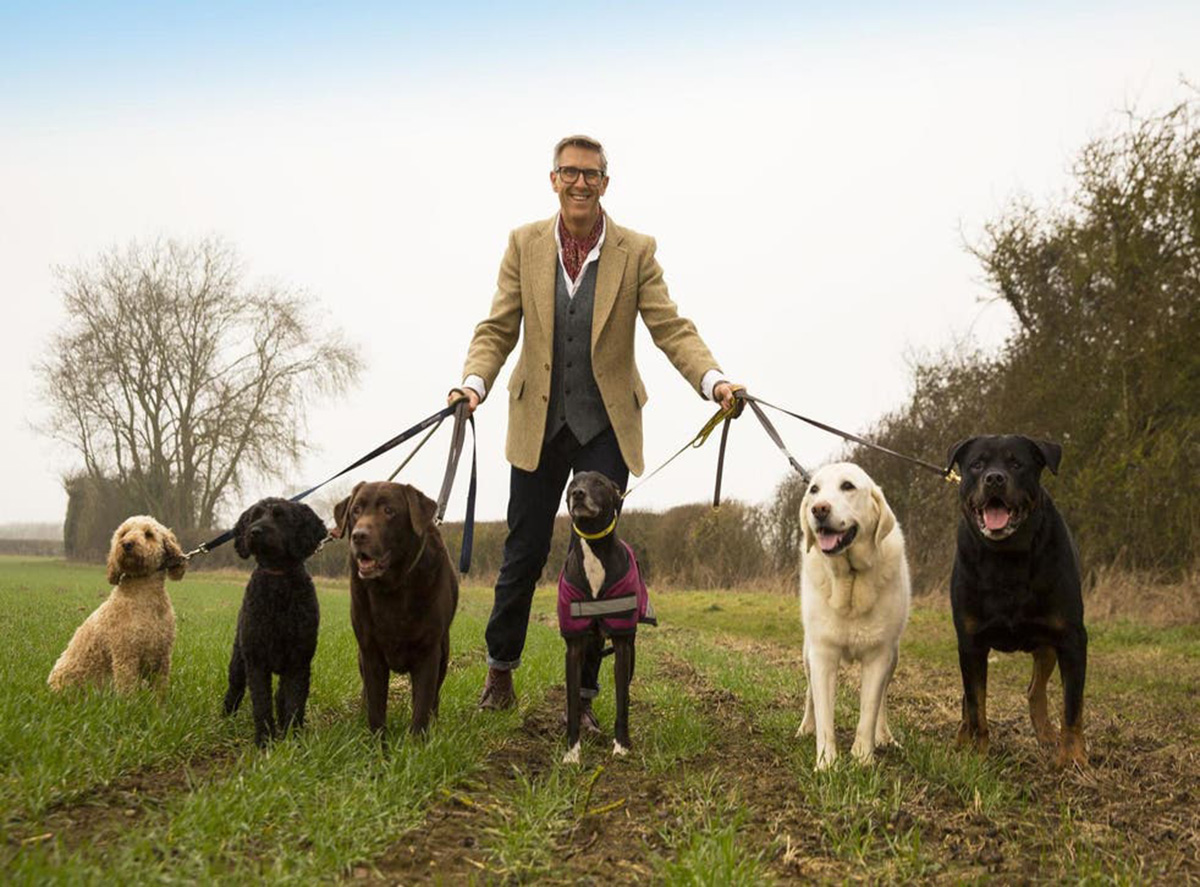Shilpa Ganatra leads us through TV’s obsession with man’s best friend.
If television’s role is, in part, to reflect social trends, it has certainly risen to the challenge when it comes to dog shows. It will surprise absolutely no one to learn that dog ownership has surged over the pandemic. Estimates suggest there are now 12 million pet dogs in the UK, up about 3 million in 12 months – and programmes about our four-legged friends have also become more “pup-ular”.
“It’s totally clear that over the past year, we’ve become more obsessed with dogs in the UK,” says Daniel Pearl, VP, commissioning editor, Channel 5, whose shows include The Dog Rescuers. “We’ve been looking to them for comfort, love and a distraction at this difficult time. And walking your dog has become almost the only thing we’re all allowed to do. So there has definitely been an amplification of our national pastime.”
Damon Pattison, creative director at Beyond Productions and producer of the BBC’s Pooch Perfect, which tests the talents of dog groomers, agrees: “Lockdown certainly put more focus on how important dogs were in people’s lives, and there are plenty of lovely shows about that. The Dog House on Channel 4 is almost First Dates for dogs – it’s a heart-warming series.”
Dog shows have long been a staple of TV schedules. The BBC first broadcast Crufts in 1950 and was still screening the competition in 2008. But today’s programmes devoted to man’s best friend are much influenced by tropes that originated in other types of popular factual TV.
And many programmes that have aired in the current cluster were commissioned long before the pandemic. Paul O’Grady: For the Love of Dogs on ITV, which sees the presenter go behind the scenes at Battersea Dogs and Cats Home, began in 2012. Channel 5’s The Dog Rescuers is in its tenth series. But these shows, and others like them, have managed to pull in solid audiences despite intense competition for fans of canine capers.
Pooch Perfect, a kind of Bake Off for dog groomers hosted by Sheridan Smith, brought in an average of 2.5 million viewers on BBC One when it launched earlier this year.
12 Puppies and Us, which follows the first few months of families and their new pets, pulled in an average audience of 1.3 million over six episodes on BBC Two. This puts it on a par with its previous incarnation, 10 Puppies and Us (with 1.7 million, but across four episodes in 2017).
On Channel 5, Dogs Behaving (Very) Badly averaged 1.8 million across eight episodes of the last series (up 13% on the slot average), while The Dog Rescuers averaged 2.5 million for the three episodes that have aired to date.
This suggests that, however many dog programmes are on television, there’s a strong audience of loyal dog lovers ready to lap them up.

It’s understandable: we have a vested interest in dogs’ welfare and root for them as steps are taken to better their lives – or their looks. Many programmes also give dog owners tips about training. And don’t forget the cuteness overload that makes pups extremely watchable.
With the trend in full flow, a key question is whether the market for dog programmes is saturated. Pearl believes it is not, thanks to each show’s unique approach.
“They all feel slightly different, and it’s important that they do feel different in tone and in feel,” he says. “For example, the core of The Dog Rescuers is following RSPCA rescuers and officers. That gives the stories a dynamic, beating heart. That doesn’t mean any of the other ideas are worse – it’s just the show’s USP.”
As heartening as these programmes can be, they often have important points to convey, says Jane Williams, secretary of the Animal Behaviour and Training Council (ABTC), which represents animal trainers. “Anything that raises awareness of the issues around being a responsible pet owner is welcome,” she says. “And then there are lots of things that we’re lobbying government for, in order to make change for the better. Television is a good vehicle for that.”
However, with that power comes responsibility to give the best advice available, and that is where some programmes can fall down, she suggests. “So many people are new to dog owning that programme-makers have a huge responsibility not to put out unrealistic messages right now. There’s not a lot about how much it costs, or how we go about selecting a suitable puppy to suit the owner’s lifestyle.”
Williams says that for advice and training methods that do make it to air, the approach should follow industry standards. “Many do, but some programmes don’t look into the ethics of the advice they’re giving, so they’re delivering messages that are potentially damaging to the welfare of animals,” she says.
An example is when programmes suggest that puppies can be kept out of their owner’s bedroom at night and left to cry until they get used to it.
“That isn’t helpful – the puppies are not doing it because they’re being bloody-minded, they’re just terrified of being left. We suggest that this process happens gradually, because moving into a new home is traumatic enough for a puppy.”
When it comes to duty of care on The Dog Rescuers, Pearl says: “It is about the duty of care towards dogs. Obviously, dogs don’t consent in the same way as human beings, but we consider it in terms of taste and being respectful towards other sentient animals.
“The other side is about the people who are losing their dogs. Sometimes we identify them, sometimes we don’t. Sometimes people are being prosecuted and there’s a public interest element, but, if someone’s having a mental-health crisis and may lose their pet, it wouldn’t feel right showing that unless they gave you consent. We have to be mindful when we film, and think through the impact it will have on those people’s lives.”
Doggie programmes have proved popular during the pandemic, but it is anyone’s guess what the long-term future may be for these shows.
Pearl, for one, is confident that the trend will outlast the health crisis: “We know people like watching shows about dogs. And we know that more people are dog owners than ever before. They have a lifetime of dog ‘parenting’ ahead of them– I don’t see anything changing.”
Pattison, however, feels we may see a dip before another resurgence. “Certainly, now is a rich time for dogs, and I know Channel 4 has a couple of dog programmes in development, but subject matter in television is fairly cyclical. In a year’s time, will there still be so many dog shows? I don’t know. But then they will rise up again in a couple of years’ time.”
The show business adage may be to never work with children or animals, but the reality is that our four-legged friends are too appealing to stay off television. So don’t expect a “paws” in their popularity for too long.







